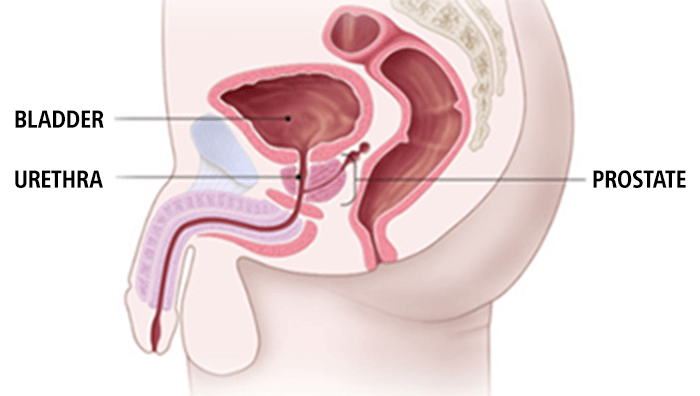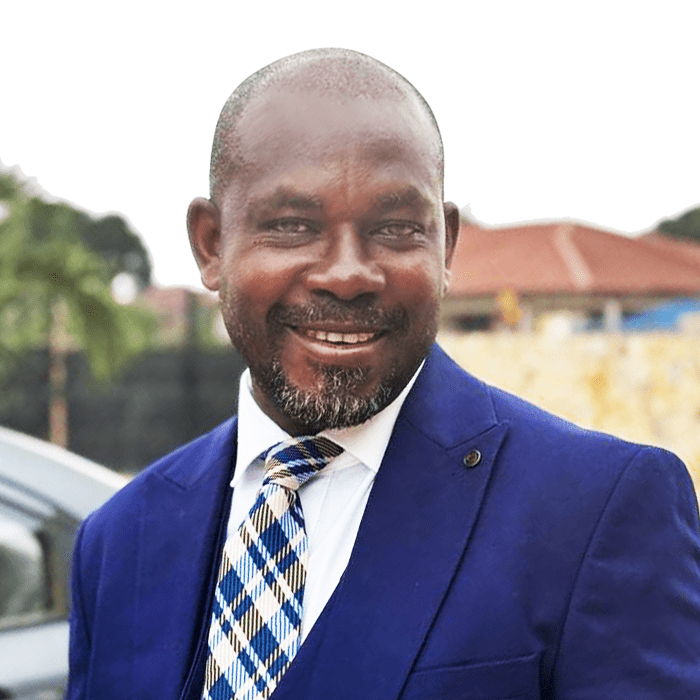Health Essentials
Getting in shape for Christmas

Christmas decorations are already out and had it not been for the “thrill” of an upcoming election, Christmas carols would have taken over our airwaves. Very soon even the die-hard exercise fanatics will be so busy doing NOTHING that time to exercise or stay fit is as close to zero as practically possible. This zero is a figure that the Ghana AIDS Commission would certainly be envious of but we continue to make strides there as well and hopefully in the not too distant future we will achieve that.
We all wish our favourite exercises will give us the same benefits as all other exercises but the truth is that some exercises are “more equal than others” just as happens in every aspect of life.
This does not mean if you are unable to perform the most effective exercises, you should exert yourself and cause injury to your body. Remember, Cobba’s First Law of Exercising is “DO NO HARM”.
These exercises may just help you stay afloat this Christmas:
• Squats
• Plank
• Push-Ups
• Walking & Dancing
Don’t short-change yourself on these MUST DOs:
• Smiling; it costs nothing but gives you the world
• Sleep; can’t overemphasize this
• Give your neck a break and stretch it gently everyday
• Breathe; deep belly breathing is always a blast
Squats
Every single rep (repetition) in this exercise is worth the effort.
Squats target the quadriceps, hamstrings and gluteals, which in simple language refers to the thigh muscles and buttocks.
It is important to learn the right technique and since it exercises large muscle groups, you are able to burn a lot of calories with squats.
In every exercise session, it is important to work large muscles before the smaller ones.
Steps
1. Keep feet, shoulder width apart
2. Back should be straight (standing posture)
3. Bend knees and lower your rear till your thighs are horizontal.
4. Return to the standing position
5. Repeat steps 1-4
6. Remember to stretch the muscles used after the exercise.
If you have difficulty following the steps above, place a chair behind you and with your back straight try to sit on it. Do not let your buttocks touch the seat, then return to the standing position and repeat. As your technique improves, you may remove the chair.
As one gets stronger you may even carry some weights while doing squats but as always start with caution. You may do only 3 reps at a time (properly). Gradually add some more. You can modify the effects of squats by widening the space between your feet or even having your heels on a slightly elevated surface.
When to avoid squats
• Severe knee pain irrespective of cause
• Knee injury even if no longer painful (you will need professional supervision)
• Acute back pain (you will later do back slides which is similar to squats and helps strengthen back muscles)
This exercise benefits almost everyone with a lifestyle disease. Hypertensives (those with high blood pressure) even get a bonus since it causes peripheral pooling of blood and helps to lower the blood pressure over time.
Plank
Arguably the safest exercise for strengthening abdominal muscles and also has the added benefit of strengthening lower back muscles. Especially for people who sit for long hours (you shouldn’t anyway) this is great news for helping your back.
1. Start by getting into a push-up position
2. Bend your elbows and rest your weight on your forearms and not on your hands
3. Support your lower body on your toes
4. Your body should form a straight line from shoulders to ankles just like a plank of wood
5. Engage your core (midsection) by sucking your belly button into your spine
6. Hold this position for the prescribed time. This may vary from 5 seconds to 1 minute. Repeat.
Push-ups (press-ups)
This is probably the first exercise most people try out; well apart from laughter and walking I presume and everyone is familiar with it.
Go ahead and squeeze a minute a day in there.
Walking & dancing
Before you set out to exercise your muscles remember to walk at least a minute before you start and a minute after you are done.
You may even walk while in one place, what matters is moving your legs and arms and getting your heart to pump.
Use every opportunity during the day to:
• use the stairs instead of the elevator
• walk while you talk on your cell phone
• Walk to a colleague’s desk at the office instead of using the phone or sending someone else.
• Pick your own stuff for cooking instead of sitting and getting people to assist with even the trivial errands
• Dance with your heart whenever you have a chance; during your Christmas programmes, while watching TV and even while you take a shower.
A minute each for Squats, Planks and Push-ups and two minutes of walking, then repeat the whole process (circuit training) two more times with no rest periods or 30 second rest periods depending on your level of fitness. Start now and make this your routine morning, afternoon or evening and it may just be enough to help you sail through the holiday season and start the New Year in your best shape ever.
AS ALWAYS LAUGH OFTEN, ENSURE HYGIENE, WALK AND PRAY EVERYDAY AND REMEMBER IT’S A PRICELESS GIFT TO KNOW YOUR NUMBERS (blood sugar, blood pressure, blood cholesterol, BMI)
Dr. Kojo Cobba Essel
Health Essentials Ltd (HE&W Group)
(dressel@healthessentialsgh. com)
*Dr. Essel is a Medical Doctor with a keen interest in Lifestyle Medicine, He holds an MBA and is an ISSA Specialist in Exercise Therapy, Fitness Nutrition and Corrective Exercise. He is the author of the award-winning book, ‘Unravelling The Essentials of Health & Wealth.’
Thought for the week – “For heart health you need to relax and have fun as well; schedule time for leisure, laugh often, learn to breathe deeply and maybe get a pet.”
References:
• The Gym Bible
• www.webmd.com
• 30dayfitnesschallenges.com
By Dr. Kojo Cobba Essel
Health Essentials
The Prostate Has Found Its Voice

The prostate gland, a small but essential organ found only in men, plays a key role in reproductive health. It produces fluid that nourishes, protects, and transports sperm, yet many focus only on its connection to prostate cancer.
Location & Function
- Situated between the bladder and penis, with the rectum behind it.
- The urethra passes through the prostate, carrying urine and semen.
Common Prostate Conditions
1. Prostatitis – Infection of the prostate:
- Symptoms: chills, fever, pus-like urethral discharge, painful urination, groin/testicular pain, painful orgasms, erectile dysfunction.
- Advice: Seek professional help; do not self-medicate.
2. Benign Prostatic Hyperplasia (BPH) – Non-cancerous enlargement of the prostate:
- Symptoms: frequent urination (especially at night), urge incontinence, difficulty starting urination, weak stream, painful urination, blood in urine, terminal dribbling, and in severe cases, inability to urinate.
- BPH can be extremely painful, sometimes compared to labor pains.
3. Prostate Cancer – Common among men, especially black men, often aggressive and with earlier onset:
- Risk Factors: older age, African descent, family history, obesity.
- Symptoms: frequent urination, straining, blood in urine/semen, weak urine flow, new erectile dysfunction; advanced stages may include fatigue, weight loss, and bone pain.
Diagnosis
- Digital rectal examination – checks for irregular or hard areas.
- PSA test, biopsy, ultrasound, CT/MRI/PET scans, bone scan.
Management
- Holistic approaches include watchful waiting, medication, surgery, and radiation (external & brachytherapy).
- Always discuss all options with your healthcare provider.
Risk Reduction Tips
- Regular screening
- Healthy, varied diet rich in fruits and vegetables (carrots, tomatoes, broccoli, kale, cauliflower)
- Maintain a healthy weight
- Exercise at least 5 days a week
Final Advice
- Share this information – the prostate needs support!
- Maintain good hygiene, walk and exercise daily, pray, and know your numbers (blood sugar, blood pressure, cholesterol, BMI).
Thought for the Week:
“There is no magic formula to being happy but making a conscious effort to be happy goes a long way.” – Dr. Kojo Cobba Essel
Dr. Essel invites readers to the La Palm Royal Beach Hotel Wellness Festival on Saturday, November 29, 2025, at 6 a.m., to walk, exercise, network, and share ideas to stay healthy.
Contact: dressel@healthessentialsgh.com
By Dr. Kojo Cobba Essel
Join our WhatsApp Channel now!
https://whatsapp.com/channel/0029VbBElzjInlqHhl1aTU27
Health Essentials
Stop the silent killer: Breaking myths to prevent sudden deaths from high blood pressure

Every week in Ghana, a life is cut short, sometimes in the middle of traffic, sometimes at a desk, sometimes in the quiet of sleep. A father doesn’t come home. A sister doesn’t wake up.
A colleague slumps at work and never gets back up. Families are left asking why and you will hear statements like what happened? Was he sick? I just saw him, he has not shown signs of ailment, what a shock and so on.
Behind many of these sudden tragedies is a quiet, invisible force: high blood pressure, or hypertension. It doesn’t scream for attention. It doesn’t always show symptoms. But it tightens its grip silently on hearts, on brains, on lives.
This is not just a medical issue. It is a human one, it is about behaviour, it is about ignorance and it is about lifestyle. It is the grandmother who never got her blood pressure checked because she felt “fine.”
It is the taxi driver, the statistician, the nurse who ignored his pounding headaches, thinking it was just stress. It is the young lady who was so vibrant at church and no one suspected she could fall and die. Because it shows no symptoms.
The alarming numbers we cannot ignore
The Ghana’s 2023 STEPS Survey on Non-Communicable Diseases conducted by The World Health Organisation, Ghana Health Service and Ghana Statistical Service has revealed findings that should push for action.
According to the report, 21.7 per cent of adults aged 18 to 69 in Ghana are living with high blood pressure. Even more alarming is that 51.1 per cent of those with hypertension are not aware of their condition.
This means that more than half of the people with dangerously high blood pressure are walking around without knowing it until tragedy strikes. That is the real danger of this silent killer.
Literature has shown that hypertension is preventable and manageable. But only if we treat it like the threat, it is. That means regular checkups; that means understanding the risks and that means talking about it openly, urgently, and with compassion.
The deadly power of myths
Why are so many Ghanaians untested or untreated? Is it out of ignorance, or the pervasive myths about hypertension and its treatment?
• Some believe blood pressure medicine “weakens the body” or “shortens life.”
• Some believe blood pressure medicine “weakens the penis and kills sexual drive”
• Others think once you start taking medication, you are “dependent for life.”
• Many say, “I feel fine, so I must be fine.”
These beliefs are not only false, but they are also deadly. The truth, according to the World Health Organisation, is that effective treatment can reduce the risk of stroke by up to 40 per cent and heart attack by 25 per cent. Avoiding treatment does not prevent dependence rather, it accelerates death.
As Dr Patrick Kuma-Aboagye, former Director-General of the Ghana Health Service, has noted, “Hypertension is preventable and treatable, but our biggest battle is misinformation and late detection.”
A national conversation we must have
This is not just a health issue it is a national emergency. Sudden deaths rob families of breadwinners, communities of leaders, and the country of its productivity. In every obituary notice caused by hypertension, there is a story of loss that could have been prevented with a simple blood pressure check and treatment.
Behind every life saved is a moment of awareness, a decision to act, therefore, the media must rise to the challenge.
Radio and television programmes should dedicate regular airtime to demystify hypertension. Newspapers should carry survivor stories, expert interviews, and practical lifestyle advice.
Social media influencers should spread awareness in local languages, reaching young people who assume they are safe.
Public health experts also have a responsibility. Screening must move beyond hospitals into churches, mosques, markets, schools, and workplaces. People should not have to wait for illness to know their BP status.
What we can do together
To stop the silent killer, we need a collective response:
• Check your blood pressure regularly, even if you feel healthy.
• Follow medical advice faithfully if diagnosed because treatment saves lives.
• For healthy lifestyle, eat less salt, reduce alcohol, reduce starchy, fat and oil intake, avoid smoking, and exercise at least 30 minutes daily.
• Encourage one another talk about blood pressure in families, communities, and workplaces.
Conclusion: Silence is killing us
What kills is not just the disease, but the silence, fear, and myths that surround it. The STEPS 2023 report has sounded the alarm: nearly one in five Ghanaian adults has high blood pressure, and more than half don’t even know it.
This is the time for bold conversation, public education, and decisive action. The media, health professionals, policymakers, and ordinary citizens must join forces to expose the myths, spread the facts, and save lives. Let us not wait for another headline.
Let us make blood pressure a national conversation before it becomes a personal tragedy. With awareness, treatment, and collective will, Ghana can stop the silence and stop the sudden deaths from the silent killer.
Written by: Ansah Moses Teye-Akam – Senior Statistician, Sociologist/Scientific Research Organisational Expert.
Email: moses.ansah@ statsghana.gov.gh/ansahmosesteyeakam@ gmail.com.gh Contact: 0244539034 / 0204359034
Join our WhatsApp Channel now!
https://whatsapp.com/channel/0029VbBElzjInlqHhl1aTU27






